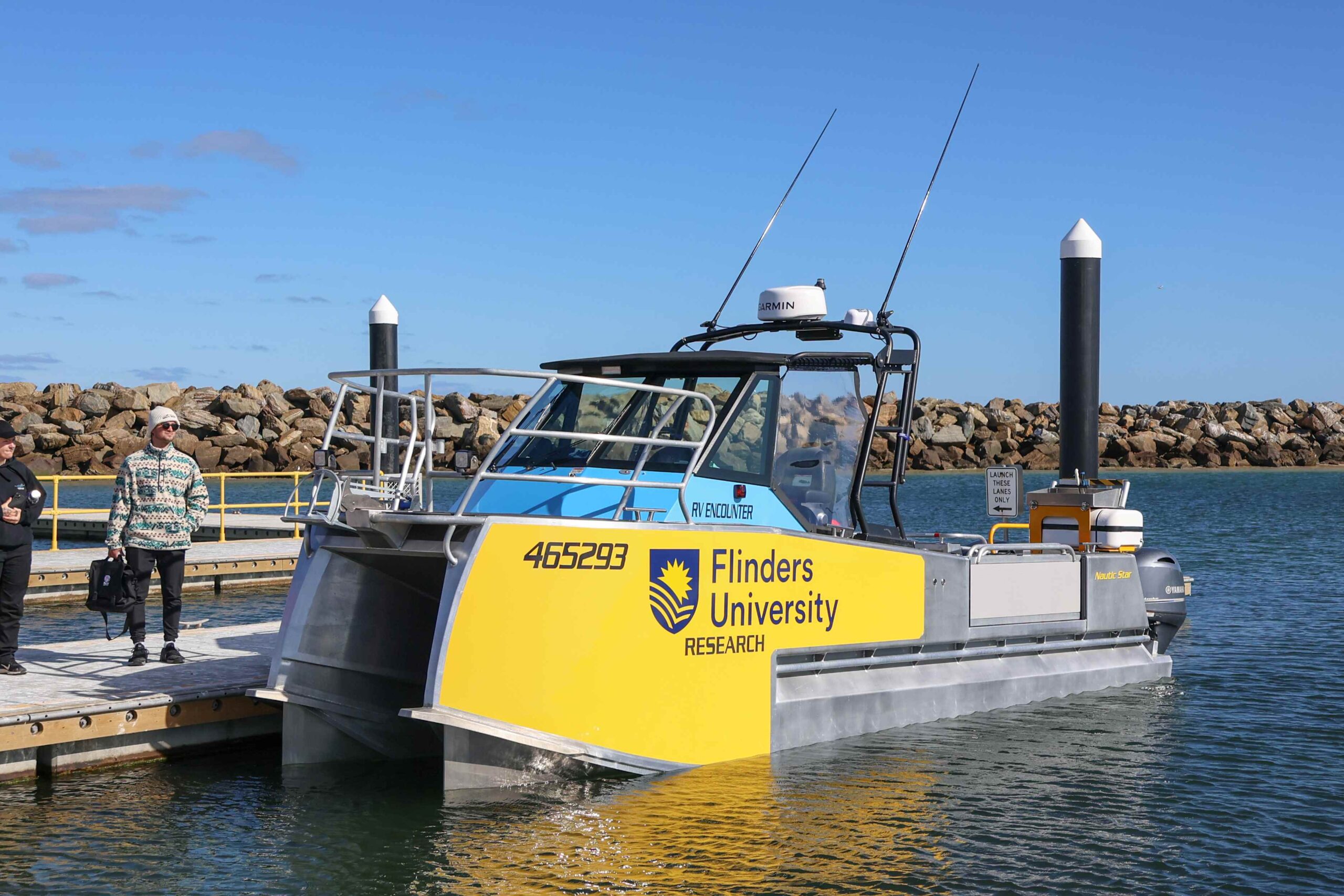
A new coastal research vessel, RV Encounter, will support the investigations and training opportunities of Flinders University's Marine and Coastal Research Consortium.

The consortium comprises more than 20 marine scientists and experts in marine biology, ecology, oceanography, coastal environments, maritime engineering, and seafood productivity.
Named in connection with the historic encounter between Flinders University's namesake Matthew Flinders and French explorer Nicolas Baudin in SA waters, the new 7.65 metre Nautic Star Catamaran has twin 130Hp outboard motors to conduct surveys, dives and research up to 30 nautical miles off the coast.
The new boat comes at a critical time for important research into the harmful algal bloom affecting South Australian marine life, says Southern Shark Ecology Group Research Leader Flinders University Professor Charlie Huveneers.
He says it's hoped the catamaran will help researchers observe and track the toxic bloom going forward.
"This vessel can contribute in deploying some of the infrastructure or monitoring devices that can monitor these algal blooms," he says.
"It will also help to deploy survey teams that can monitor impact so that we can see what happens when algal blooms take place."

Professor Huveneers, who also leads the Marine and Coastal Research Consortium, says Flinders University research leaders are involved in supporting statewide effort to better understand the factors contributing to this year unprecedented algal bloom, assess the impacts it has caused on our marine ecosystems, and monitor recovery.
"Our experts, studying a broad diversity of ecological processes and marine organisms ranging from viruses to sharks and dolphins, will use the University's fleet of five research vessels to help find solutions to aquatic environmental and ecological issues," says Professor Huveneers, who was recently appointed to the State Science Advisory Panel to help manage the response to the algal bloom.
"Now more than ever, our vital marine resources need monitoring, data, and expertise to be able predict when extreme events are likely to occur and ensure informed mitigation and management measures in the future."
The latest information on the harmful algal bloom and local marine conditions can be found at the official SA Government website (and Department of Environment and Water and at PIRSA SARDI).






